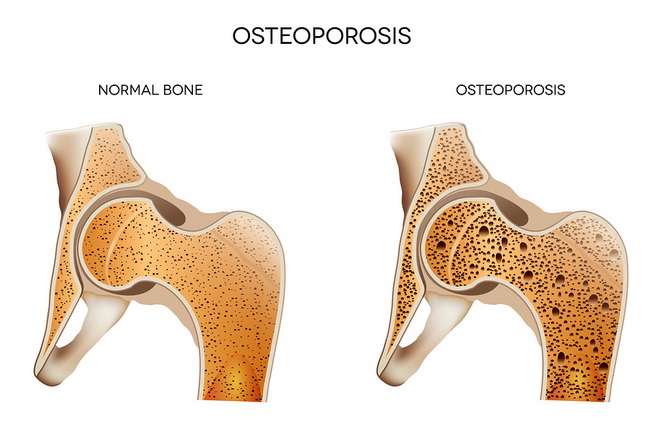- Make It Yourself Lavender Heart-Shaped Bath Bombs!
- 20 Things You Never Knew About “Down There”
- 12 Best Foods For Those Suffering From Arthritis Pain
- 12 Personal Hygiene Mistakes Almost Everyone Makes (Mom Never Told You About #4!)
- 15 Medicinal Plants And Herbs From The Cherokee People
- 12 Mind-Blowing Benefits Of Drinking Coconut Water During Pregnancy
- 12 Outstanding Winter Foods That Won’t Fatten You Up Like A Christmas Turkey
12 Ways to Lower Your Risk of Osteoporosis (Ladies, This is Vital Info!)

Photo credit: bigstock.com
Although it’s true that osteoporosis can affect anyone, it generally affects women, especially post-menopausal women. It’s been estimated that about 10 million Americans have osteoporosis, with another 30 million estimated to have low bone density, which greatly increases their risk for developing osteoporosis.
Breaking hip and leg bones used to be quite common and was thought to be a normal sign of aging. We now know that this is anything but normal. Simple healthy lifestyle and diet changes can prevent osteoporosis. The sad fact is, however, that most people don’t know this. In fact, one poll showed that only 27 percent of women knew that a healthy diet could impact their bone strength.
The key to osteoporosis is prevention. Eating a healthy, calcium rich diet, along with sufficient vitamin D and weight bearing exercise, can prevent osteoporosis before it becomes a problem. The body can repair a broken bone at any age, but it is far better to keep your bones strong, dense, and healthy than to try to reverse this disease after it’s started.
Keep in mind that eating calcium is not enough. You need plenty of vitamin D as well for your body to properly absorb calcium. Get a minimum of 15 minutes of natural sunlight each day (30 minutes would be better), if possible. If there is some reason that you cannot get natural sunlight, take at least 400 IUs of vitamin D each day.
Want to avoid osteoporosis and weak bones as you age? It’s what you do now that matters later on. Keep reading and find out the 12 best ways to stop osteoporosis before it starts.
1. Are You Taking Medication?
Some prescription medication negatively affects your bones. If you have an autoimmune condition, such as lupus or rheumatoid arthritis, or if you will need to take corticosteroids for a long time, ask your doctor about the effects of your medication on your bone health. There might be alternatives that won’t be as damaging to your bones. If you have already been on medications for a while, you might want to ask your doctor about checking for osteoporosis with a bone density screening.
































